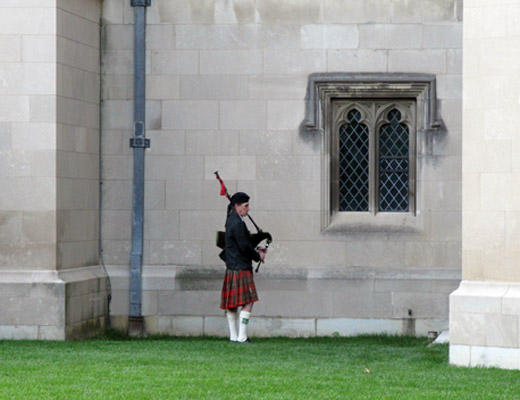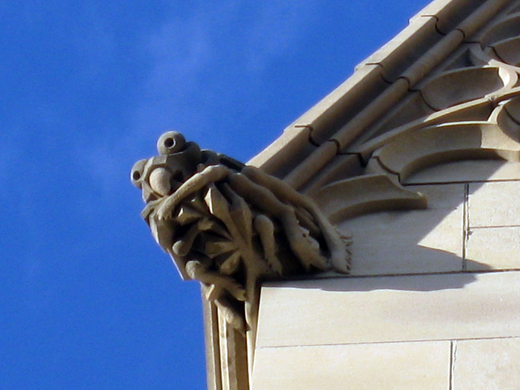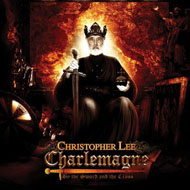 One of my favorite objects at the American Art Museum, and maybe the strangest, is The Throne of the Third Heaven of the Nations’ Millennium General Assembly, a sprawling altar built in a Maryland garage out of tin foil, light bulbs, and cardboard tubes. I’ve never known whether the Smithsonian curators were drawn to this piece for its demonstration of the grandiose precision of madness or because it reflects the indefatigability of religious vision. Either way, museum-goers respect James Hampton’s weird masterpiece. They approach his altar with a snicker, but then they linger, often for far longer than they expect, beguiled by a sense of coherence only its creator could fully understand.
One of my favorite objects at the American Art Museum, and maybe the strangest, is The Throne of the Third Heaven of the Nations’ Millennium General Assembly, a sprawling altar built in a Maryland garage out of tin foil, light bulbs, and cardboard tubes. I’ve never known whether the Smithsonian curators were drawn to this piece for its demonstration of the grandiose precision of madness or because it reflects the indefatigability of religious vision. Either way, museum-goers respect James Hampton’s weird masterpiece. They approach his altar with a snicker, but then they linger, often for far longer than they expect, beguiled by a sense of coherence only its creator could fully understand.
Judged by its opening tracks, Charlemagne: By the Sword and the Cross promises a singularly mad plan of its own. Billed as an “epic canvas of symphonic metal,” this concept album (now available on CD or as an iTunes download) features Christopher Lee as a the King of the Franks, backed by singers and musicians from across Europe. I wish I could say this album is more “heavy metal” than “weighty brass,” and I’d love to report that Sir Christopher and his compatriots weave trancelike melodies that slip over the transom of social consciousness and insinuate themselves into your dreams. Unfortunately, in symphonic metal as in the ninth century, the reach of Charlemagne’s mailed fist far exceeds his grasp. This album is exceedingly strange.
Oh, the concept is sound: Languishing on his deathbed, Charlemagne speaks fondly of his family, recalls his conquest of the Lombards, and regrets his wars against the Saxons. In scenes set by the crisp voice of a female English narrator, Sir Christopher Lee recasts the rex Francorum into Rex Harrison, gamely talk-singing his role over catchy orchestrations that cross Rent with those Vivaldi-inspired diamond commercials from a few years back. Occasionally, flecks of metal do glitter when guitars rev up for a memorable hook; verily, I won’t soon forget hearing Saruman growl, “I shed the blood of the Saxon maaaaan!” As someone who’s long hailed the mating of medievalism and metal, I unironically love this sort of thing; I want to grimace musically and run with it.
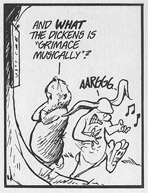 But as the hardscrabble heirs of Wagnerian drama, concept albums need more than a plot; they need perspective, often a nutty one, to buttress some overarching theme. Pet Sounds is an ode to fleeting adolescence. The Wall is obsessed with (among other things) the intersection of the individual and history. Time, ELO’s 1981 time-travel disco concept album, is about homesickness. Operation Mindcrime by Queensryche revels in paranoia. By contrast, the opening tracks of By the Sword and the Cross are a blur. The dying Charlemagne praises himself for baptizing pagans and prays that God will forgive him for relieving 4,000 Saxons of their heads. Then he cries, “I am the chosen one to lead the faithless to the Cross,” as we flash back to his war with the Lombards, and a choir and a roaring guitar herald: “SPRINGTIME!”
But as the hardscrabble heirs of Wagnerian drama, concept albums need more than a plot; they need perspective, often a nutty one, to buttress some overarching theme. Pet Sounds is an ode to fleeting adolescence. The Wall is obsessed with (among other things) the intersection of the individual and history. Time, ELO’s 1981 time-travel disco concept album, is about homesickness. Operation Mindcrime by Queensryche revels in paranoia. By contrast, the opening tracks of By the Sword and the Cross are a blur. The dying Charlemagne praises himself for baptizing pagans and prays that God will forgive him for relieving 4,000 Saxons of their heads. Then he cries, “I am the chosen one to lead the faithless to the Cross,” as we flash back to his war with the Lombards, and a choir and a roaring guitar herald: “SPRINGTIME!”
So all of this looks, at first, like an ode to Charlemagne’s worst deeds—until the cloying narrator informs us that Charlemagne worshiped “a ruthless, vindictive God” and that “the blood-steeped king consoled himself with the idea that he was genuinely out to save souls.” So is this album a critique of medieval Christian violence? Well, let’s look at what Charlemagne, Queen Hildegard, and their backup singers proclaim as the final act, “Starlight,” builds to a climax:
Come, let’s drink to the time
When peace and the sun will shine
And the world will be as one,
Forever.
Charlemagne! Your peoples are there for all to see.
The power and the glory are your destiny!
The dawning of a new age will shine just like a star…
What can I say? At a time when Brussels has molded Charlemagne into history’s blancmange, it’s downright bracing to stumble upon an artistic project in which a pan-European cast of musicians and performers dramatizes incidents of horrific medieval violence and then belts out apotheotic hymns while a blood-stained emperor midwifes a Heaven on earth.
Forget that Charlemagne’s imperial coronation is absent from this album. Never mind that Procrustes’ entire comitatus couldn’t make lines like “You have incurred the wrath of Lombard King Desiderius!” metrically snug. And don’t judge the bonus track, a sound-effects-heavy dramatization of Charlemagne rallying the Franks to undertake a Spanish crusade, even though it ends at the climactic moment when the producers, presumably, ran out of weed. I’ve listened to By the Sword and the Cross twice, and I still have no sense of its ideal listener. I do know that it’s not an album for hawkish Christians, nor for secular EU supporters, nor for disinterested humanists, nor for committed aficionados of stage musicals or heavy-metal concept albums.
So who’s this album for? Maybe it’s for people who simply want to hear Sir Christopher Lee sing-talk lines like this:
When all the deeds of my life are played before my eyes,
Will what I see come as a great surprise?
Life is short, the hour of death uncertain;
I must confess my sins before they draw the final curtain!
Lee gives this album a dash of B-movie panache, but he can’t give it coherence. That would require the symphonic-metal equivalent of a Roger Waters or a Brian Wilson, or even a Tommy Saxondale, a lunatic who might have pumped By the Sword and the Cross into a vivid personal vision.
For 1,200 years, artists, scholars, and politicians have created Charlemagnes for all seasons. Here, two Karls stand side by side: the bland icon of European unity who’s fond of neither sword nor cross, and the Christian warlord who’s rarely groomed for modern pop-culture respectability. Although leery of legend, the folks behind this album can’t commit to the implications of history and let the two Karls clash. Ambivalence is not metal, so they need to close the Ernst Kantorowicz and pick a king worth dramatizing: a Charlemagne who’s stark raving mad, or wildly pious, or turned on by bloodshed, or haunted by regret. A journey through such a mind might have been a guilty pleasure to get heads banging—the musical equivalent of an altar of trinkets and tin.
[For a historian’s take on this album, see the review by Jonathan Jarrett at A Corner of Tenth-Century Europe.]



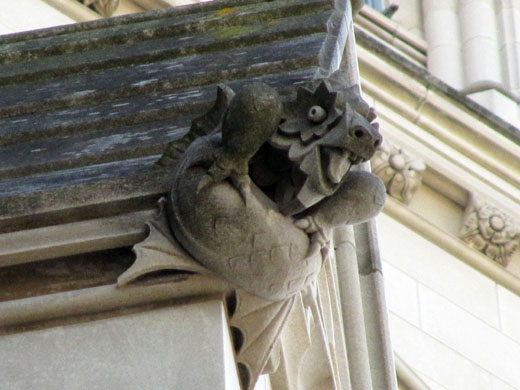

 One of my favorite objects at the
One of my favorite objects at the  But as the hardscrabble heirs of Wagnerian drama, concept albums need more than a plot; they need perspective, often a nutty one, to buttress some overarching theme.
But as the hardscrabble heirs of Wagnerian drama, concept albums need more than a plot; they need perspective, often a nutty one, to buttress some overarching theme. 



